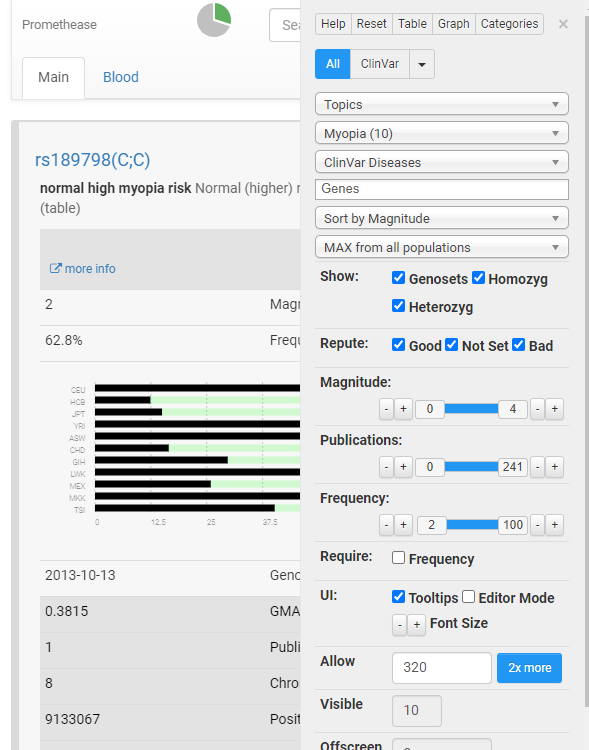The Importance of DNA Testing and Understanding Genetic Polymorphisms for Human Health
DNA testing has become an invaluable tool in modern medicine, offering insights into an individual's genetic makeup that can significantly impact health management. One of the key aspects of genetic testing is understanding the polymorphisms—variations in genes—that may influence how the body processes essential nutrients, including vitamins and minerals. These genetic variations can help explain why certain individuals may have deficiencies in vitamins like D, A, B9, and B12, which are crucial for maintaining overall health.
Understanding Genetic Polymorphisms
Polymorphisms are common genetic variations that can affect how our bodies function. They can be benign, but many play an important role in influencing health and disease risk. By understanding these genetic differences, individuals can better manage their health, optimize their nutrition, and prevent potential deficiencies or conditions linked to these polymorphisms.
Some of the most significant polymorphisms involve genes related to the metabolism of vitamins D, A, B9 (folate), and B12. These vitamins are essential for various physiological functions, including immune system regulation, vision, nerve health, and red blood cell production. A deficiency in any of these vitamins can lead to a variety of health issues, but with the help of DNA testing, individuals can understand their specific genetic predispositions to such deficiencies.
Vitamin D Receptor Gene Polymorphisms
The Vitamin D receptor (VDR) gene is responsible for coding a protein that enables the body to respond to vitamin D. Variations in the VDR gene can affect how efficiently the body uses vitamin D, which is essential for bone health, immune function, and more. Individuals with certain polymorphisms in this gene may struggle to absorb or activate vitamin D, even when they have sufficient exposure to sunlight or consume vitamin D-rich foods. As a result, these individuals may be at a higher risk of vitamin D deficiency, which can lead to conditions like osteoporosis, weakened immunity, and mood disorders.
Beta-Carotene 15,15'- Monooxygenase (BCMO1) Gene Polymorphisms
The BCMO1 gene is involved in the conversion of beta-carotene (a precursor of vitamin A) into active retinol, the usable form of vitamin A in the body. Some people have genetic polymorphisms in the BCMO1 gene that reduce their ability to convert beta-carotene into vitamin A, resulting in lower levels of retinol. This can lead to vitamin A deficiency, which is critical for eye health, immune function, and skin integrity. Individuals with such polymorphisms may need to consume more preformed vitamin A (from animal sources) or consider supplementation.
Methylation Gene Polymorphisms
Methylation is a biochemical process that is crucial for gene expression, DNA repair, and the metabolism of several vitamins, including folate (vitamin B9) and B12. The body requires an adequate supply of these vitamins to support normal methylation, which is essential for processes like detoxification, cell division, and the synthesis of neurotransmitters. Genetic variations in methylation-related genes, such as MTHFR (methylenetetrahydrofolate reductase), can impair the body's ability to convert folate into its active form, leading to deficiencies in vitamin B9, B12, and other related compounds.
People with certain polymorphisms in genes like MTHFR may experience elevated levels of homocysteine, a compound that, when elevated, can increase the risk of cardiovascular disease. Additionally, a deficiency in folate or B12 due to genetic polymorphisms can lead to neurological issues, fatigue, or complications in pregnancy, such as neural tube defects.
The Role of DNA Testing in Health Optimization
By undergoing DNA testing, individuals can identify these and other genetic polymorphisms that might affect their nutrient metabolism. This insight enables more personalized health plans, including tailored dietary recommendations and supplementation strategies. For example, individuals with VDR gene polymorphisms might benefit from higher doses of vitamin D supplements, while those with BCMO1 polymorphisms may need to focus on obtaining vitamin A from animal sources rather than plant-based beta-carotene.
Additionally, understanding methylation-related genetic variations can guide individuals in optimizing their folate and B12 intake. This proactive approach can prevent deficiencies before they lead to serious health issues.
In conclusion, DNA testing offers an opportunity for individuals to better understand their genetic predispositions and make informed decisions about their health. By focusing on polymorphisms related to vitamins D, A, B9, and B12, people can take steps to optimize their nutrition, prevent deficiencies, and improve their overall well-being.
Author(s):
Alexandr, B. (2024, August 1). Deciphering the source code of the DNA test from 23andMe. BIO-H.COM. https://bio-h.com/en/raw-dna-test-decode-23andme/

